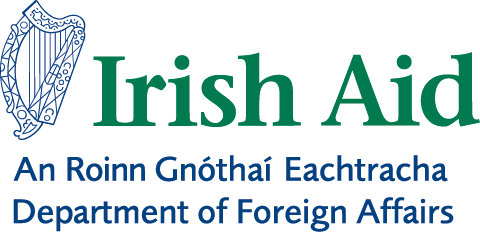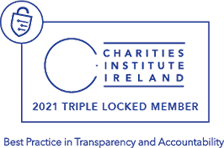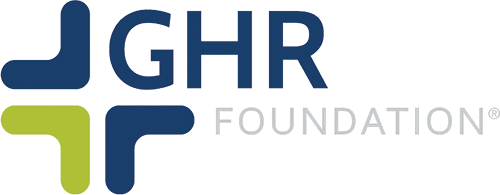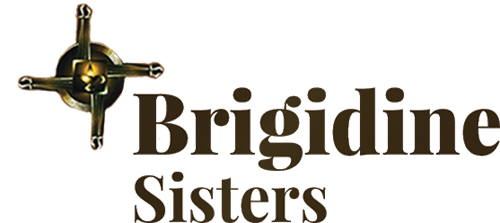Total Sustainable Livelihoods Spending
€2,631,307
€1,791,322
Sustainable Agriculture
€594,191
Small and medium
scale enterprises
and cooperatives
€165,560
Savings, Loans
and Microfinance
€80,234
Natural Resource Management and Conservation
In 2021 Misean Cara supported
69 livelihood projects by 30 members, targeting 105,702 people in 15 countries.
Few factors are more destabilising to individuals, families and communities than the inability to sustain a liveable income. The resulting poverty, food insecurity and domestic instability can have detrimental effects for generations.
For many people in developing countries in 2021, the struggle to find and maintain a decent livelihood continued to be exacerbated by the COVID-19 pandemic and its disruptive effect on local and national economies. Additionally, the increasing intensity and impact of climate change further impacted many people’s ability to maintain a stable income.
In 2021 our members continued to implement sustainable livelihoods projects aimed at making sure families have a secure future. Projects supported rural communities with training in climate smart farming techniques and water conservation; micro-finance and community lending programmes for small and medium enterprises; skills training in trade sectors for disadvantaged youth; and co-operative business management skills, especially for women.
Our members also highlighted the importance of counteracting the growing climate crisis with projects that teach people to protect the earth’s resources through conservation methods and sustainable, climate-proof livelihoods.
Innovation in Livelihoods
Changing weather patterns caused by the climate crisis are having a major impact on farmers across the globe but it is in the poorest countries where agriculture is affected most.
In 2021 our Innovation Fund encouraged members to trial new approaches to adapt and cope with the impacts that the climate crisis is having on small scale farmers. 14 members were granted €204,694 in funding to trial new approaches and we hope to be able to share and scale up successful approaches in the future. The Franciscan Brothers in Baraka, Kenya explored the viability of Effective Microorganisms/Indigenous Microorganisms (EMO/IMO) technology as a climate-friendly fertiliser for crops, livestock nutrition and the control of pit latrine odour. The project carried out scientific studies using different EMO/IMOs to conclude that a managed approach with a combination of EMO/IMOs has great potential as a low-cost technology to improve household food security.
Following this, the Franciscan Brothers are scaling up the approach through a new project with a higher target population group and expanded geographic range, that will provide training on EMO/IMO technology and increase food production for many more families.

Sustainable Farming and Livelihoods in Zambia
Misean Cara member:
Sisters of the Sacred Hearts of Jesus and Mary (Chigwell)
Country:
Zambia
For 60 years, the Sisters of the Sacred Hearts of Jesus and Mary (SSHJM) have lived and worked in the Mbala District of Zambia’s Northern Province, where most people depend on agriculture as their main source of livelihood. Many of the households they work with live in chronic poverty, earning barely enough income to sustain themselves.
Misean Cara supports the SSHJM Households in Distress (HID) project that aims to bolster the food security and household earnings of 400 families, by training people in farming as a business and better agricultural methods. By transitioning to climate-smart approaches such as growing heat and drought resistant crops, harvesting rainwater for irrigation and planting trees next to fields for shade, villagers are able to increase crop yields and sell the surplus for income while keeping sufficient food for nutritious family consumption.
Beauty Nanyangwe, divorced and the guardian of her two nephews, struggled to support her small family with the income from poorly paid piece work. Beauty enrolled in the Households in Distress project (SSHJM-HID), which trained her in farming as a business. She received essential farming supplies and equipment and now grows a variety of crops such as beans, soya beans, maize, ground nuts and sweet potatoes.
Recently remarried, Beauty has taken the profits from her farming activities to build a new, iron roofed house, outfitted with a solar panel to run an indoor lighting system. She has invested in two oxen and a plough to boost the productivity of her new banana orchard and also to lease to other farmers in her area for extra income. “I really thank Misean Cara and the SSHJM-HID Programme for changing my life. In the past, I could only manage to eat one meal but now, I am able to eat three meals a day. I am now able to employ some people to help me with my farming activities, enabling me to have more time to build up my off-farm business activities of selling eggs and cooking oil.”
I really thank Misean Cara and the SSHJM-HID Programme for changing my life.
Beauty Nanyangwe,
from Mbala, Zambia,
For further information about our work or to comment on this report, please contact:
Misean Cara
4th Floor, Callaghan House,
13-16 Dame Street, Dublin 2,
D02 HX67, Ireland
Tel: +353 (0) 1 405 5028
Email: info@miseancara.ie
Facebook: /MiseanCaraIreland
Twitter: @miseancara
©2022 Misean Cara

Misean Cara gratefully acknowledges the funding support of Irish Aid.

Misean Cara has signed the Dóchas Code of Conduct on Images and Messages for Non-Governmental Development Organisations.

Misean Cara is a member of the Charities Institute of Ireland.

Misean Cara gratefully acknowledges the funding support of GHR Foundation.

Misean Cara gratefully acknowledges the funding support of the Raskob Foundation.

Misean Cara gratefully acknowledges the funding support of the Brigidine Sisters.
